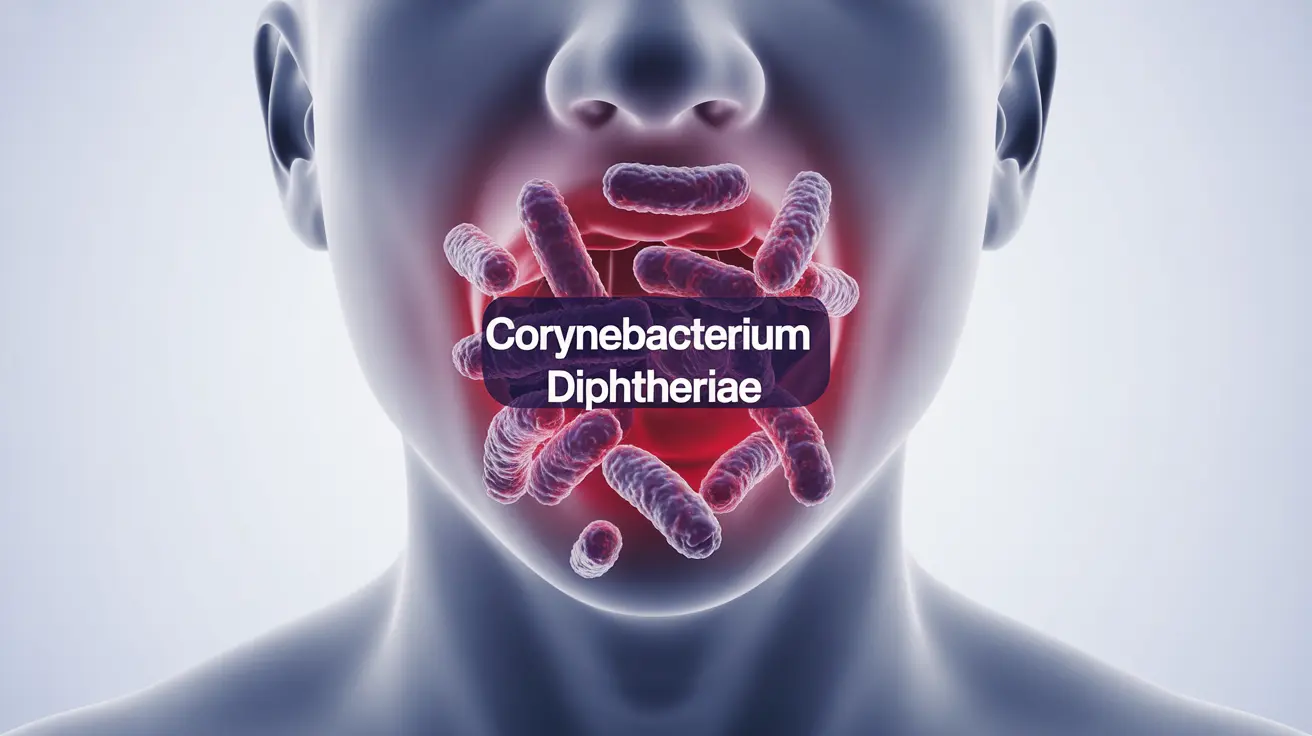Diphtheria is a serious bacterial infection that, while rare in developed countries today, remains a significant public health concern globally. This potentially life-threatening disease affects the respiratory system and can lead to severe complications if left untreated. Understanding its causes, symptoms, and prevention is crucial for public health awareness.
Despite its current rarity in many parts of the world, diphtheria continues to occur in areas with limited access to healthcare and low vaccination rates. This comprehensive guide will explore everything you need to know about this important infectious disease.
Understanding the Cause and Transmission
Diphtheria is caused by the bacterium Corynebacterium diphtheriae, which primarily affects the mucous membranes of the nose and throat. The bacteria produce a powerful toxin that can cause severe damage to various organs and tissues in the body.
- Respiratory droplets from coughing or sneezing
- Close physical contact with an infected person
- Contact with contaminated objects or surfaces
- Rarely, through skin wounds
Recognizing the Signs and Symptoms
The symptoms of diphtheria typically begin 2-5 days after exposure to the bacteria. Early recognition is crucial for effective treatment.
Initial Symptoms
- Mild fever and chills
- Sore throat
- Fatigue and weakness
- Loss of appetite
- Swollen lymph nodes in the neck
Advanced Symptoms
- Thick, gray coating in the throat and tonsils
- Difficulty breathing or rapid breathing
- Bluish skin coloration
- Drooling or neck swelling
- Hoarseness or barking cough
Diagnosis and Medical Assessment
Proper diagnosis of diphtheria requires careful medical evaluation and laboratory testing. Healthcare providers typically:
- Examine the characteristic gray membrane in the throat
- Take throat swabs for bacterial culture
- Conduct blood tests to check for complications
- May perform additional tests to assess organ function
Treatment Approaches
Treatment for diphtheria must begin immediately upon suspected diagnosis. The main components of treatment include:
Immediate Interventions
- Administration of diphtheria antitoxin
- Antibiotics to kill the bacteria
- Isolation to prevent transmission
- Supportive care and monitoring
Recovery Support
- Bed rest and monitoring
- Fluid management
- Cardiac monitoring
- Respiratory support if needed
Prevention and Vaccination
Prevention through vaccination is the most effective strategy against diphtheria. The DTaP vaccine (for children) and Tdap vaccine (for adults) provide protection against diphtheria, tetanus, and pertussis.
- Following recommended vaccination schedules
- Maintaining up-to-date booster shots
- Practicing good hygiene
- Avoiding close contact with infected individuals
Frequently Asked Questions
What causes diphtheria and how is it transmitted from person to person? Diphtheria is caused by Corynebacterium diphtheriae bacteria and primarily spreads through respiratory droplets or direct contact with infected individuals.
What are the common symptoms and signs to look for in diphtheria infection? Key symptoms include sore throat, fever, swollen neck glands, and a characteristic gray membrane in the throat. Advanced cases may show difficulty breathing and bluish skin.
How is diphtheria diagnosed and what tests confirm the infection? Diagnosis involves clinical examination, throat swabs for bacterial culture, and laboratory tests to confirm the presence of toxin-producing bacteria.
What treatments are available for diphtheria and how quickly should they be started? Treatment must begin immediately with diphtheria antitoxin and antibiotics. Supportive care and isolation are also essential components of treatment.
How can diphtheria be prevented and why is vaccination important? Vaccination is the primary prevention method, with the DTaP/Tdap vaccines providing essential protection. Regular boosters and good hygiene practices help maintain immunity and prevent spread.




